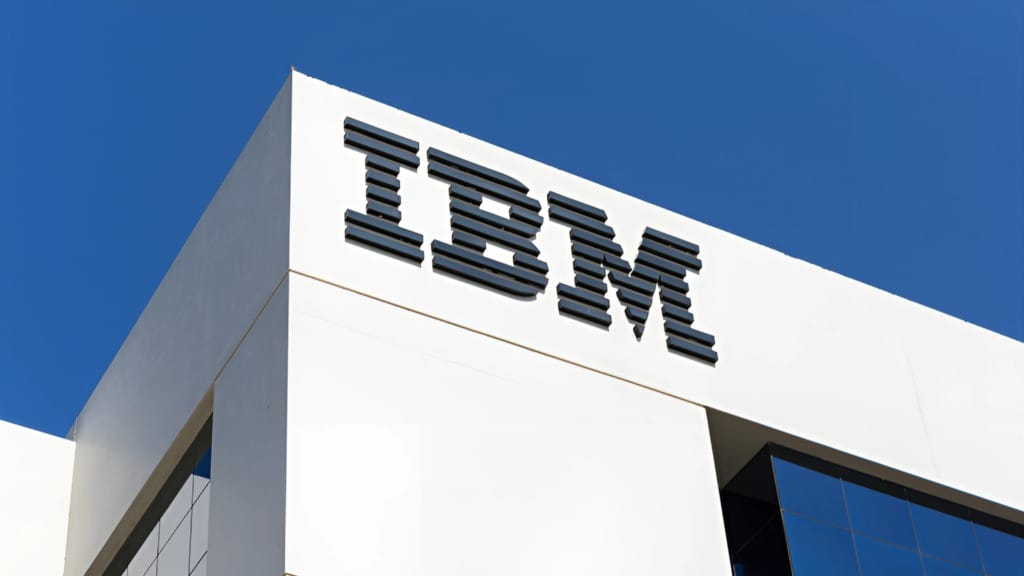How will AI integration transform industries in 2025?
AI is transforming industries in 2025 through innovation, efficiency, and new business models. Explore key tech investments, sector impacts, and future trends.

Artificial Intelligence (AI) has become a transformative force reshaping industries worldwide. AI is central to innovation and operational improvement, revolutionising healthcare and finance, streamlining manufacturing, and personalising retail. Companies are integrating AI to enhance processes, improve decision-making, and design products tailored to evolving consumer needs.
Table Of Content
The scale of this transformation is primarily driven by significant investments in AI, with companies like Amazon, Google, Meta, and Microsoft leading the charge. Amazon’s focus on AI-powered logistics and recommendation systems has made its e-commerce operations smoother and more efficient, while Google’s healthcare breakthrough demonstrates AI’s real-world impact. These large-scale investments enhance existing services and create entirely new ones, with far-reaching benefits across industries.
As AI’s applications grow, it creates ripple effects across markets, helping companies optimise supply chains, reduce waste, and deliver personalised customer experiences. Healthcare is seeing improved diagnostics, finance firms are improving fraud detection, and manufacturers are minimising equipment downtime using predictive maintenance. This integration signals that businesses no longer view AI as a supporting technology but as an essential driver of sustainable growth.
With great potential, however, comes the responsibility to ensure ethical use, protect privacy, and address workforce disruptions. Companies and regulators are stepping up, ensuring that AI systems are responsibly designed and implemented. As AI continues to expand, it will increasingly focus on aligning innovation with ethical considerations to maximise its benefits.
AI in various sectors
AI’s versatility has allowed it to impact multiple industries in unique ways, each benefiting from its ability to process data and generate actionable insights. In healthcare, AI is making diagnostic processes faster and more accurate. For example, Google Health’s AI-powered imaging systems have shown superior accuracy in detecting breast cancer compared to traditional methods. This improves survival rates and demonstrates how AI can work alongside medical professionals to provide better patient care. As AI expands into wearables, patients can now access real-time health monitoring, enabling personalised treatment plans and preventive care.
The success of AI in healthcare mirrors its adoption in finance, where its role extends beyond improving efficiencies to managing risk and preventing fraud. Financial institutions use AI to monitor transactions, detect suspicious activity, and make real-time decisions. For instance, JPMorgan Chase’s AI fraud detection systems continuously learn from evolving threats, making them increasingly effective. AI also powers algorithmic trading, with models predicting market movements faster than human analysts. This transformation has led firms like Goldman Sachs to embrace AI-driven strategies to diversify portfolios and optimise returns.
AI’s ability to predict consumer behaviour has a transformative impact on retail, too. For example, Amazon’s AI-driven recommendation engine analyses browsing history, purchases, and preferences to suggest products accurately. This personalisation enhances customer satisfaction and boosts sales. Meanwhile, Walmart’s AI-based inventory management ensures that products are stocked efficiently, reducing waste and ensuring on-time availability. AI-powered virtual shopping assistants and AR further bridge the gap between physical and digital retail experiences.
Just as AI is streamlining customer-facing sectors, it also enhances manufacturing productivity. Factories use predictive maintenance systems to prevent equipment failures before disrupting production, minimising downtime and costs. Siemens, for example, deploys AI-powered monitoring systems across its facilities to optimise resource allocation. AI-powered robots perform complex assembly tasks, boosting production output while maintaining precision and safety. As smart factories evolve, manufacturers integrate AI into every production stage, from raw material processing to quality assurance.
Major tech companies’ AI investments

The rapid growth of AI is driven mainly by the strategic investments of major tech players, who see AI as a long-term value driver. Amazon has committed US$100 billion to AI initiatives, focusing on improving e-commerce, logistics, and AI-based recommendations. Its use of AI-enabled robots in warehouses has helped it deliver goods faster while reducing operational costs. AWS, Amazon’s cloud arm, also empowers businesses to leverage AI tools, extending its influence across industries.
Following a similar trajectory, Google recently announced its US$75 billion AI investment to transform search engines, healthcare, and mobility solutions. Its DeepMind subsidiary, responsible for groundbreaking research like protein folding prediction, has accelerated drug discovery and scientific advancements globally. Google’s AI-powered Waymo project is reshaping the future of transportation with self-driving technology. By strategically embedding AI across its platforms, Google ensures it stays at the forefront of AI innovation.
Meta’s AI strategy, on the other hand, focuses on creating immersive experiences within its metaverse vision. AI powers avatars, interactive virtual spaces, and dynamic content within this digital space. Meta also uses AI for content moderation on its social platforms, enhancing online safety. Meanwhile, its investments in generative AI tools are unlocking new creative opportunities, from developing virtual products to personalising user interactions.
Microsoft’s AI investments focus on integrating AI within productivity tools and enterprise services. Through its partnership with OpenAI, Microsoft is embedding AI into its Azure platform, allowing businesses to scale AI applications globally. AI-driven features within Microsoft 365, such as meeting summaries and grammar suggestions, improve productivity and enhance user experience. Microsoft’s focus on responsible AI development also ensures that innovations are beneficial and ethical.
Impact on products and services
AI integration is improving operational efficiency and product development, enabling companies to deliver more innovative services. By automating repetitive processes, companies are freeing up resources to focus on strategic initiatives. For example, AI-powered chatbots handle routine customer interactions, allowing human agents to tackle complex issues. AI-based data analysis further helps companies refine products based on real-time feedback, resulting in faster product iterations. Unilever has utilised AI to streamline product development, launching successful products faster by analysing market trends and consumer preferences.
AI is also giving rise to new business models. AI-as-a-Service (AIaaS) platforms, provided by companies like Google and Amazon, offer scalable AI tools without needing in-house expertise. This particularly benefits small and medium enterprises (SMEs) looking to compete with larger players. Subscription-based AI services for marketing and operational efficiencies are becoming the norm, enabling companies to optimise campaigns and reduce operational costs.

Despite these benefits, businesses face challenges related to data privacy, ethical concerns, and job displacement. As AI systems require large datasets, organisations must navigate regulatory requirements to protect sensitive information. To address bias and fairness concerns, IBM has pioneered ethical AI frameworks, helping businesses deploy transparent and inclusive systems.
The long-term potential of AI is immense. Companies that successfully integrate AI stand to gain competitive advantages, from enhanced customer experiences to faster innovation cycles. With ongoing investment and refinement, AI applications will only deepen their influence across products and services.
The future outlook for AI across industries
AI’s future will be characterised by its ability to create more personalised, efficient, and sustainable business models. As companies scale their AI initiatives, they transition from task-specific applications to holistic, integrated systems supporting long-term goals. AI’s role in providing actionable insights and automating complex decisions will be central to this transition.
Ongoing research and development will play a key role. Microsoft’s collaboration with OpenAI continues to push boundaries in generative AI, creating tools capable of producing human-like text and creative content. Emerging technologies such as quantum computing and neuromorphic hardware will further accelerate AI’s capabilities, making applications faster and more efficient.
However, AI’s expansion will require continuous attention to ethical concerns. Policymakers are collaborating with industry leaders to implement regulations ensuring responsible AI deployment. Companies that adopt transparent and fair AI systems will earn consumer trust, which will be crucial to long-term sustainability.
Looking ahead, AI’s integration into critical areas such as sustainability, healthcare, and security will provide solutions to some of society’s most complex challenges. With strategic investments and responsible practices, businesses can unlock AI’s full potential, creating a future defined by innovation and shared progress.
















